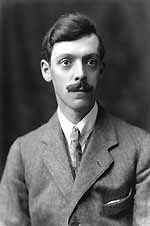Australian philosophy
Australian philosophy refers to the philosophical thought that originates from, or is significantly developed in, Australia. While it encompasses a wide range of philosophical issues and perspectives, including ethics, epistemology, and metaphysics, Australian philosophy is often noted for its contributions to philosophy of mind, political philosophy, and the philosophy of science. This article aims to provide an overview of the key themes, figures, and contributions of Australian philosophy.
History and Background[edit | edit source]
The history of Australian philosophy can be traced back to the 19th century, with the establishment of universities in Australia that began to teach and research philosophical subjects. However, it was in the 20th century that Australian philosophy began to gain its distinct identity, with philosophers such as John Anderson at the University of Sydney playing a pivotal role. Anderson's emphasis on realism and his critique of idealism influenced a generation of Australian philosophers.
In the mid-20th century, the University of Melbourne became another significant center for philosophical thought, particularly under the influence of Douglas Gasking and Jack Smart. Smart's work on materialism and the mind-body problem has been particularly influential, both in Australia and internationally.
Key Themes and Contributions[edit | edit source]
Philosophy of Mind[edit | edit source]
Australian philosophy has made significant contributions to the philosophy of mind, particularly through the development of the identity theory of mind. This theory, which posits that mental states are identical to brain states, was developed by Australian philosophers U.T. Place, J.J.C. Smart, and David Armstrong in the 1950s and 1960s. Their work has been influential in the discussions around physicalism and the nature of consciousness.
Political Philosophy[edit | edit source]
In political philosophy, Australian philosophers have engaged with issues of social justice, democracy, and human rights. The work of Peter Singer on animal rights and effective altruism has had a global impact, challenging people to reconsider the ethical implications of their lifestyle choices and the ways in which they can contribute to solving global problems.
Philosophy of Science[edit | edit source]
Australian philosophy has also contributed to the philosophy of science, with philosophers like David Malet Armstrong and Alan Chalmers exploring issues related to scientific realism and the nature of scientific theories. Their work has contributed to broader debates on the nature of scientific knowledge and the methods through which it is obtained.
Contemporary Australian Philosophy[edit | edit source]
Today, Australian philosophy is characterized by its diversity, with philosophers working in a wide range of areas, including feminist philosophy, environmental philosophy, and Indigenous philosophies. The latter seeks to incorporate the philosophical traditions of Australia's Indigenous peoples into the broader Australian philosophical discourse, recognizing the value of these perspectives in addressing contemporary issues.
Influential Figures[edit | edit source]
- John Anderson - Known for his work in realism and critique of idealism.
- Jack Smart - Notable for his contributions to the identity theory of mind and physicalism.
- Peter Singer - Renowned for his work on animal rights and effective altruism.
- David Malet Armstrong - Influential in the fields of metaphysics and philosophy of mind.
- Alan Chalmers - Known for his work on the philosophy of science.
Conclusion[edit | edit source]
Australian philosophy, with its rich history and diverse contributions, continues to be an important part of the global philosophical community. Its emphasis on practical engagement with philosophical issues, combined with a willingness to address complex and often controversial topics, ensures that Australian philosophy remains vibrant and relevant.
This article is a philosophy-related stub. You can help WikiMD by expanding it!
Search WikiMD
Ad.Tired of being Overweight? Try W8MD's physician weight loss program.
Semaglutide (Ozempic / Wegovy and Tirzepatide (Mounjaro / Zepbound) available.
Advertise on WikiMD
|
WikiMD's Wellness Encyclopedia |
| Let Food Be Thy Medicine Medicine Thy Food - Hippocrates |
Translate this page: - East Asian
中文,
日本,
한국어,
South Asian
हिन्दी,
தமிழ்,
తెలుగు,
Urdu,
ಕನ್ನಡ,
Southeast Asian
Indonesian,
Vietnamese,
Thai,
မြန်မာဘာသာ,
বাংলা
European
español,
Deutsch,
français,
Greek,
português do Brasil,
polski,
română,
русский,
Nederlands,
norsk,
svenska,
suomi,
Italian
Middle Eastern & African
عربى,
Turkish,
Persian,
Hebrew,
Afrikaans,
isiZulu,
Kiswahili,
Other
Bulgarian,
Hungarian,
Czech,
Swedish,
മലയാളം,
मराठी,
ਪੰਜਾਬੀ,
ગુજરાતી,
Portuguese,
Ukrainian
Medical Disclaimer: WikiMD is not a substitute for professional medical advice. The information on WikiMD is provided as an information resource only, may be incorrect, outdated or misleading, and is not to be used or relied on for any diagnostic or treatment purposes. Please consult your health care provider before making any healthcare decisions or for guidance about a specific medical condition. WikiMD expressly disclaims responsibility, and shall have no liability, for any damages, loss, injury, or liability whatsoever suffered as a result of your reliance on the information contained in this site. By visiting this site you agree to the foregoing terms and conditions, which may from time to time be changed or supplemented by WikiMD. If you do not agree to the foregoing terms and conditions, you should not enter or use this site. See full disclaimer.
Credits:Most images are courtesy of Wikimedia commons, and templates, categories Wikipedia, licensed under CC BY SA or similar.
Contributors: Prab R. Tumpati, MD


